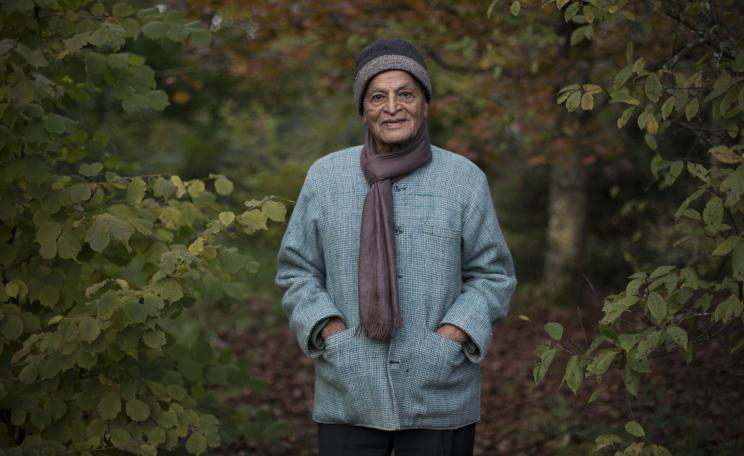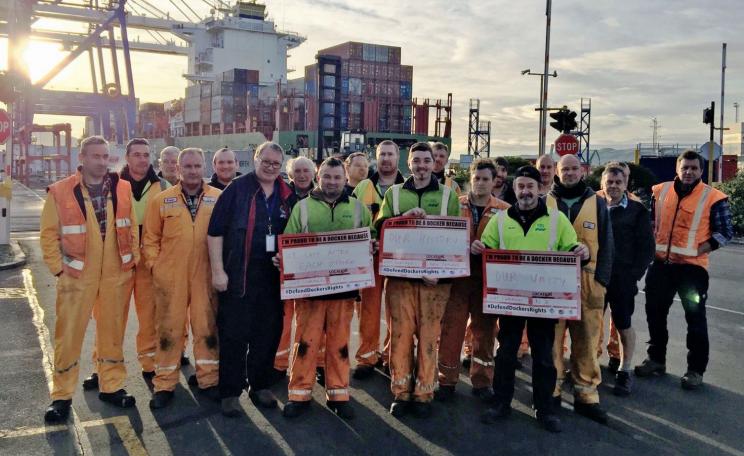This is also a gendered issue. For example, women who work with toxic chemicals face reproductive health issues.
Industries like solar, wind and battery storage must expand rapidly, and fossil fuels must stay in the ground for the world to stay below 1.5°C.
Much has been written about the need to retrain workers currently in carbon intensive industries for a planned transition into decent green employment.
This is particularly important in the Covid-19 era, when thousands of people have lost employment just as the need for long-term job creation, resilience and sustainability to withstand health, climate and economic shocks becomes clearer.
This series of articles has been published in partnership with Dalia Gebrial and Harpreet Kaur Paul and the Rosa Luxemburg Stiftung in London. It first appeared in a collection titled Perspectives on a Global Green New Deal.
Restoration
Transitions take time, resources and vision - but workers in fossil fuel intensive industries can be protected through pensions, for older workers, and funded retraining into guaranteed green work schemes, for younger workers.
Education providers must start offering courses to equip a new generation of engineers, construction workers, plumbers, metal workers, architects and others to be part of a low-carbon future.
Work must always provide living wages, safe working conditions - workers producing solar panels, for example, deal with a number of toxic substances and electrical hazards - and give workers a meaningful voice in decision-making, including through ensuring freedom of association. Workers cooperatives can create deeper worker democracy.
Public ownership and investment of a green stimulus could create millions of jobs in specific sectors.
These include passive housing construction so that infrastructures generate more energy than they use through energy efficiency retrofits and embedded SMART renewable energy generation infrastructure; public transport upgrades and innovative electric car sharing schemes; ecological restoration and land, forestry, and agriculture improvements and community energy, waste, and manufacturing infrastructure.
Minerals
Such commitments are essential given that, globally, governments are planning to produce about 50 percent more fossil fuels in 2030 than would be consistent with limiting warming to 2°C and 120 percent more than would be consistent with limiting warming to 1.5°C.
Outputs from the fossil fuel industry continue to grow with the benefit of government handouts - approximately USD$500 billion in 2019), unprecedented support from private banks - global banks funneled USD$2.7 trillion into fossil fuels since Paris Climate Agreement, and the confidence that they can expect business as usual without political shifts towards progressive Green New Deals.
This is also a gendered issue. For example, women who work with toxic chemicals face reproductive health issues.
The need to protect workers from heat stress as temperatures rise above 51°c in India and Pakistan, for example, is also well documented, as is the need to create work for those on the frontline of climate change impacts.
Furthermore, whilst the transition to renewable infrastructure - such as electric cars - often headlines Green New Deal discussions in the Global North, there is little acknowledgement of the exploitative assembly lines of these supposedly green goods, and the extractive mining of minerals and metals they require.
Global production of batteries, solar panels, electric car motors, fuel cells, nuclear reactors and wind turbines relies on rare earth minerals and metals that are overwhelmingly sourced from the Global South, often under appalling ecological and labour conditions.
Toxic
With China dominating the manufacturing of solar PV and lithium-ion batteries, what happens on the factory floors of Guangzhou should be as central to envisioning a Green New Deal as rebuilding industry in the rust-belt of the US or de-industrialised impoverished parts of rural Britain.
Communities at the frontline of the extraction of these minerals are experiencing displacement, internal and external conflict - including threats and killings of land defenders and movement leaders.
They experience eroded livelihoods, contaminated air, soil and water, lack of access to arable land and freshwater, economic dependence, severe health impacts, and cultural loss as peoples are severed from their land.
At the manufacturing level, exploitative conditions with long hours, poverty wages, union busting, and health and safety con- cerns are endemic.
This is also a gendered issue. For example, women who work with toxic chemicals face reproductive health issues.
Horrors
Women engaging in unpaid sustenance farming or care work face heightened difficulties, particularly where they must travel further for access to clean water, undertake care for longer periods as younger generations migrate to urban areas unimpacted by saltwater intrusion, or have to cultivate on land in a context of desertification.
A holistic Global Global Green New Deal would need to repair historic gendered injustices, including with regards to paid and unpaid labour; reduce consumption of renewable energy powered goods; promoting re-use, repair and mending, as well as sharing; seek international agreements and governance mechanisms to fairly and allocate the supply of the available rare minerals and metals.
Trade agreements must ensure workers’ rights protection and environmental sustainability standards that empower workers and communities to expand their negotiating power.
They must facilitate worker and community-led green industrial strategies in mining and manufacturing areas and leverage public purchasing power by ensuring socially, environmentally and climate-responsible procurement that meets ILO and human rights frameworks, and democratises energy and mining companies complicit in supply-chain horrors.
These Authors
These Authors
Harpreet Kaur Paul and Dalia Gebrial are the curators and editors of Perspectives on a Global Green New Deal, where this article first appeared.







